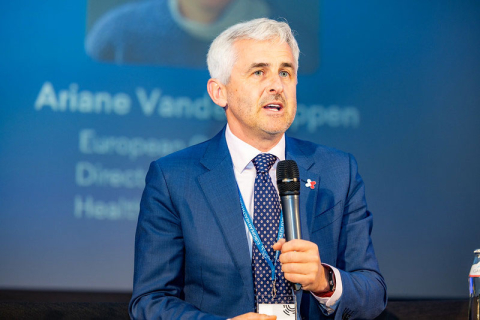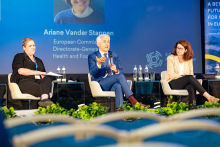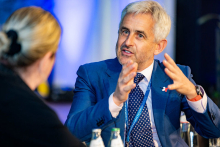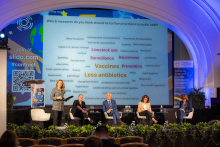The theme of this year's edition was “Rethinking solidarity in health. Healing Europe's fractured social contract.” Over 900 participants discussed how to strengthen the inclusiveness and fairness of healthcare systems and rebuild trust in the system and its solidarity, as these are essential factors for the well-being of entire societies.
Our scientist in a debate on inequalities in antibiotic resistance in Europe
Wojciech Feleszko, MD, PhD, is one of the few Poles ever invited to participate in the Forum as a panelist/lecturer. Our expert took part in a session entitled “Addressing the inequalities of Antimicrobial Resistance (AMR) in Europe: Reducing the burden for greater collective well-being.”
Why is the issue of antimicrobial resistance (AMR) so important? AMR is now a silent pandemic, responsible for around 35,000 deaths per year in the EU/EEA region. Forecasts indicate that this number will rise to as many as 390,000 deaths per year by 2050 if decisive action is not taken in this area.
The participants of the session, who apart from Wojciech Feleszko, MD, PhD, included: Vanessa Carter, Executive Director of AMR Narrative, Anna Thomas, Scientific Director at OM Pharma, and Ariane Vander Stappen, Head of the One Health Unit for Antimicrobial Resistance at the European Commission, discussed inequalities between European countries resulting from the overuse of antibiotics and differences in antibiotic resistance between women and men. They also discussed best practices and alternative approaches to complement antibiotics in the fight against AMR, and the role of European initiatives to combat AMR and healthcare-associated infections, such as the EU Preparedness Strategy and Joint Action.
Our expert spoke about the pediatric aspects of AMR and immunological methods of reducing antibiotic use, including vaccinations, biological drugs, and immunomodulatory drugs. He emphasized the importance of such a multidisciplinary approach in the fight against resistance. He also referred to the One Health concept, which states that human health is closely linked to animal health and the shared environment, and stressed that European action must be integrated in order to counteract the development of antibiotic resistance.
What else was discussed at the Forum?
During the conference, over 20 sessions were held, focusing on current health challenges, including technological and digital innovation, strategies for improving and strengthening healthcare systems, mental health, population aging, and issues related to migration and management of health crisis across Europe.
Nearly 150 panelists from over 30 countries took part in the sessions, bringing together diverse perspectives from academia, public administration, and civic society. The panelists included leading politicians in the field of health (including the European Union commissioner, members of the European Parliament, and representatives of ministries) as well as leaders of international organizations (e.g., the European Observatory on Health Systems and Policies, Mental Health Europe, and the International Federation of Red Cross and Red Crescent Societies).
Photo: European Health Forum Gastein 2025



